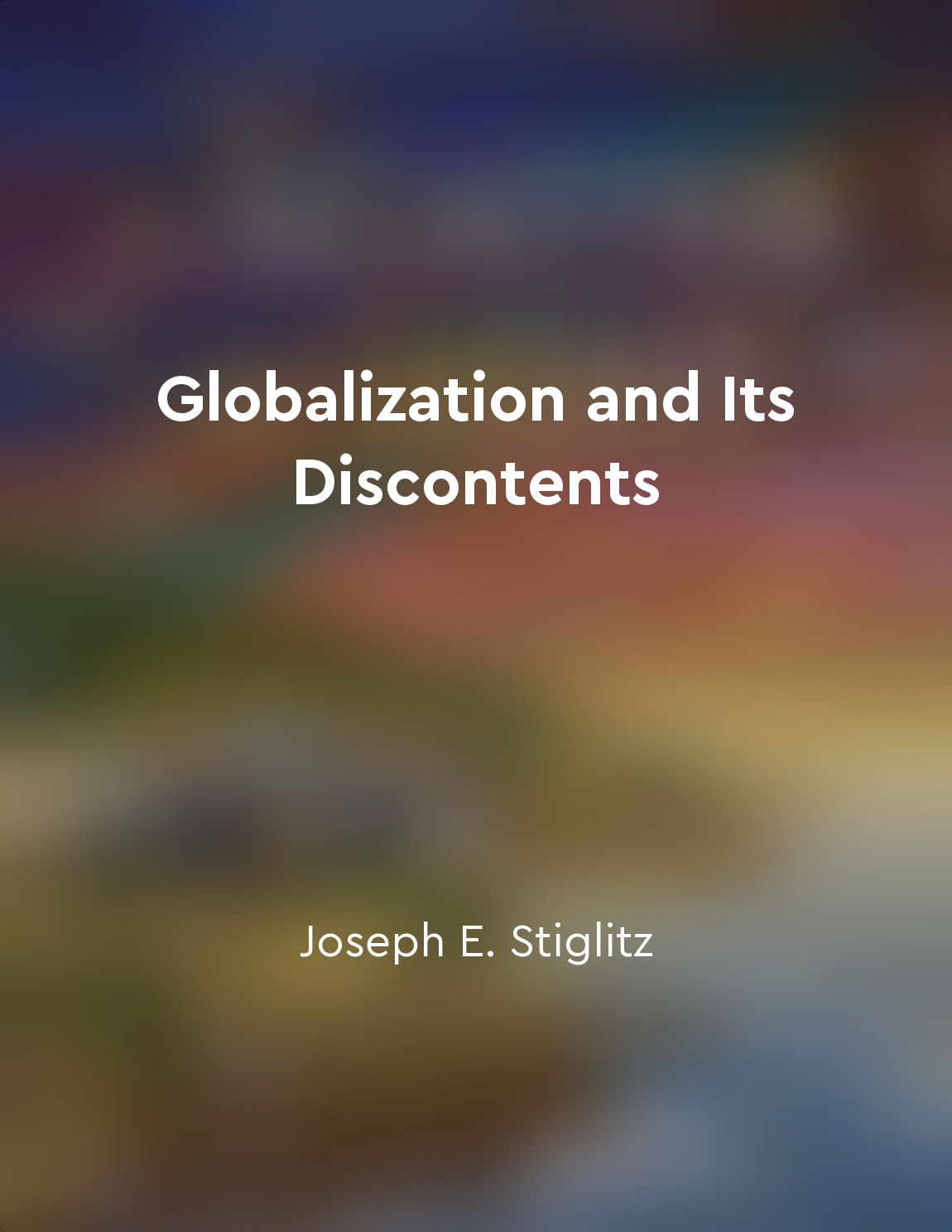Globalization has led to the erosion of worker rights in many countries from "summary" of Globalization and Its Discontents by Joseph E. Stiglitz
Globalization has resulted in a race to the bottom in terms of workers' rights in many countries. As companies seek to cut costs and increase profits by moving production to countries with lower labor standards, workers in these countries face a dilemma. They are forced to accept lower wages and worse working conditions in order to compete for jobs with workers in other countries. This downward pressure on labor standards has been exacerbated by the lack of enforcement mechanisms to protect workers' rights on a global scale. In the absence of strong international regulations to ensure that workers are treated fairly, multinational corporations have been able to exploit differences in labor standards between countries. This has led to a situation where workers in developing countries are often subject to exploitation and abuse, as their governments are unable or unwilling to protect their rights. In addition, the increasing use of subcontracting and temporary labor arrangements has made it more difficult for workers to organize and advocate for better working conditions. Furthermore, the power dynamics between workers and employers have shifted in favor of the latter in many countries. As companies have become more mobile and can easily move production to countries with lower labor costs, workers have less bargaining power to demand higher wages and better working conditions. This has resulted in a situation where workers are forced to accept whatever terms their employers offer, out of fear of losing their jobs to cheaper labor elsewhere.- Globalization has created a race to the bottom in terms of workers' rights, as companies seek to maximize profits by exploiting differences in labor standards between countries. This has led to a situation where workers are often subject to exploitation and abuse, with little recourse for protection. In order to address this issue, it is essential to establish stronger international regulations to ensure that workers are treated fairly and to prevent the erosion of labor standards in the global economy.
Similar Posts
Iran coup leads to longterm consequences
In 1953, the United States orchestrated a coup in Iran that ousted the democratically elected Prime Minister, Mohammad Mossadeg...
Workplace hierarchies perpetuate unequal power dynamics
In workplaces, hierarchies create a system where some individuals have more power and authority than others. This unequal distr...
Ordinary citizens bear the brunt of corruption
The impact of corruption is not felt equally by all members of society. It is the ordinary citizens who suffer the most from th...

Power and ambition drove innovation forward
Throughout the history of technology, power and ambition have always played a crucial role in driving innovation forward. The d...
Individuals have the power to create change
Throughout these confessions, it becomes abundantly clear that people, individuals like you and me, possess a tremendous amount...
The environment is under threat
The environment is under threat. The signs of this crisis are everywhere. The polar ice caps are melting, seas are rising, and ...
Corporate interests distort information to maintain their power
In the realm of modern society, a dangerous force lurks beneath the surface - the ever-reaching arm of corporate power. These e...
Crime rates are increasing
In America today, the streets are becoming more dangerous. The nightly news is filled with reports of violent crimes and sensel...

The government had a responsibility to regulate business practices
The belief that the government should intervene in the regulation of business practices is rooted in the understanding that the...
Corruption exacerbates disparities
Corruption, that eternal scourge of societies, has a particularly pernicious effect on the distribution of income and wealth. B...


